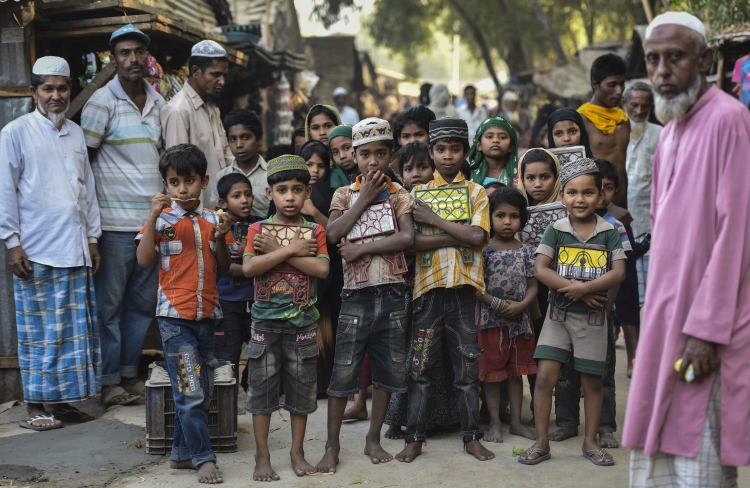Myanmar: In The Midst of Ethnic Cleansing

The UN Secretary-General Antonio Guterres has made a damning statement of Myanmar(Burma) at the beginning of the most recent United Nations security council meeting stating that the conflict has become, "the world's fastest developing refugee emergency and a humanitarian and a human rights nightmare."
The country formally known as Burma, and now referred to as Myanmar, is in the midst of a violent religious conflict. Although tensions between the Buddhist majority and the Rohingya minority have been brooding for close to a century now, it seems as though the eruption has finally occurred. More than 500,000 Rohingya Muslims have fled their homes to neighboring Bangladesh, and there are reports that upwards of 3,000 Muslims have been killed by Myanmar security forces this month alone.
Image Credit: Shutterstock
Myanmar's current leader, Aung San Suu Kyi, who was once considered a champion of Human Rights is now being admonished by Political leaders around the globe. The United Nations’ top human rights official accused the country, on Monday the 12th of September, of carrying out “a textbook example of ethnic cleansing” against Rohingya Muslims. Aung San Suu Kyi, who received a Nobel Peace Prize 1991 for her non-violent struggle for Democracy and Human Rights, denied the allegations in an interview with BBC news near the beginning of September. She stated, “No, because I don’t think there is ethnic cleansing going on. I think Ethnic Cleansing is too strong an expression to use for what’s happening.”
Overview of Myanmar and Its HistoryImage Credit: Wikimedia/ASEAN.svg
Myanmar, formerly referred to as Burma, was under British Colonial rule from 1824-1948. During this period British Colonialists encouraged migration in order to increase rice cultivation and profits along - this resulted in the Muslim population tripling in the space of four decades (1871-1911). The British also promised a separate state for the Muslim population in exchange for support. For instance, during the Second World War when allegiances began to split throughout Asia, the Rohingya sided with the British while the Myanmar Nationalist sided with the Japanese. The Rohingya did not receive their separate state, however, did gain prestigious posts in the government.
When Myanmar gained independence in 1948, many violent conflicts broke out between the multiplicity of different ethnic groups. After the Buddhist majority gained power, the Rohingyas appealed for their separate state. The officials denied this request and also made it clear that they were not apart of the Buddhist State, calling them foreigners and refusing them citizenship. This eventually lead to a Rohingya rebellion in 1950 in which the community demanded citizenship. This rebellion was quashed and with the help of the Citizenship Act of Myanmar in 1982 has helped ensure the Rohingya community remain stateless. They are now considered the single largest stateless community in the world.
What Happens Now?
Although the recent conflict started in retaliation to a group of attacks on the Myanmar state by the Arakan Rohingya Salvation Army, the Myanmar Military has struck back with a unproportionate scale of violence. There have been reports of landmines being placed outside villages, entire villages being massacred, and many cases of looting and pillaging.
As the world calls on Aung San Suu Kyi to take some form of action she remains adamant that the military is not overstepping its legal authority. This statement has done little to quell the tempers of the international community sparking the UN to extend its investigation into the violence against the Rohingya and the British Government to cease their training program of Myanmar military personnel.
Image Credit: Shutterstock










